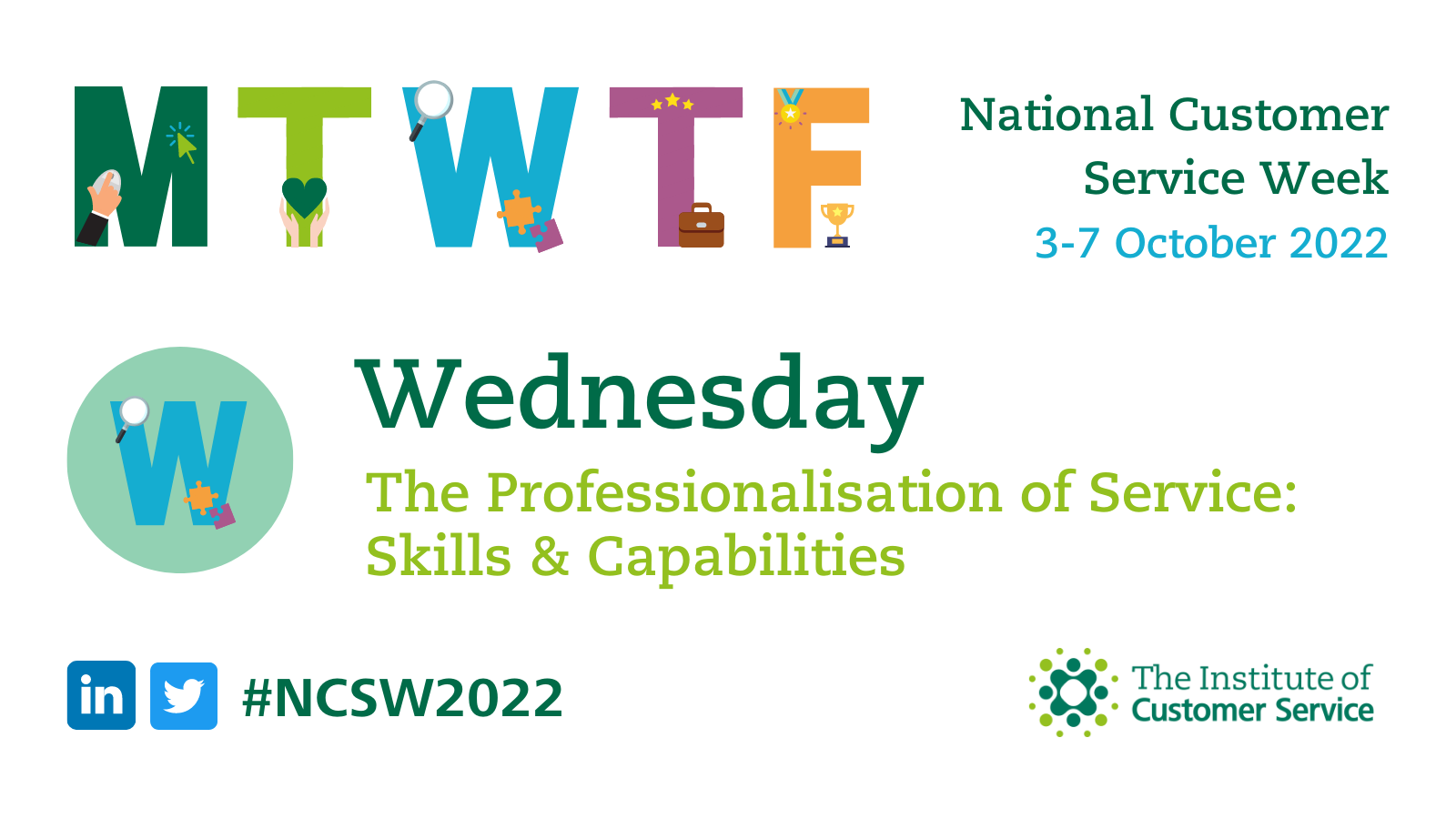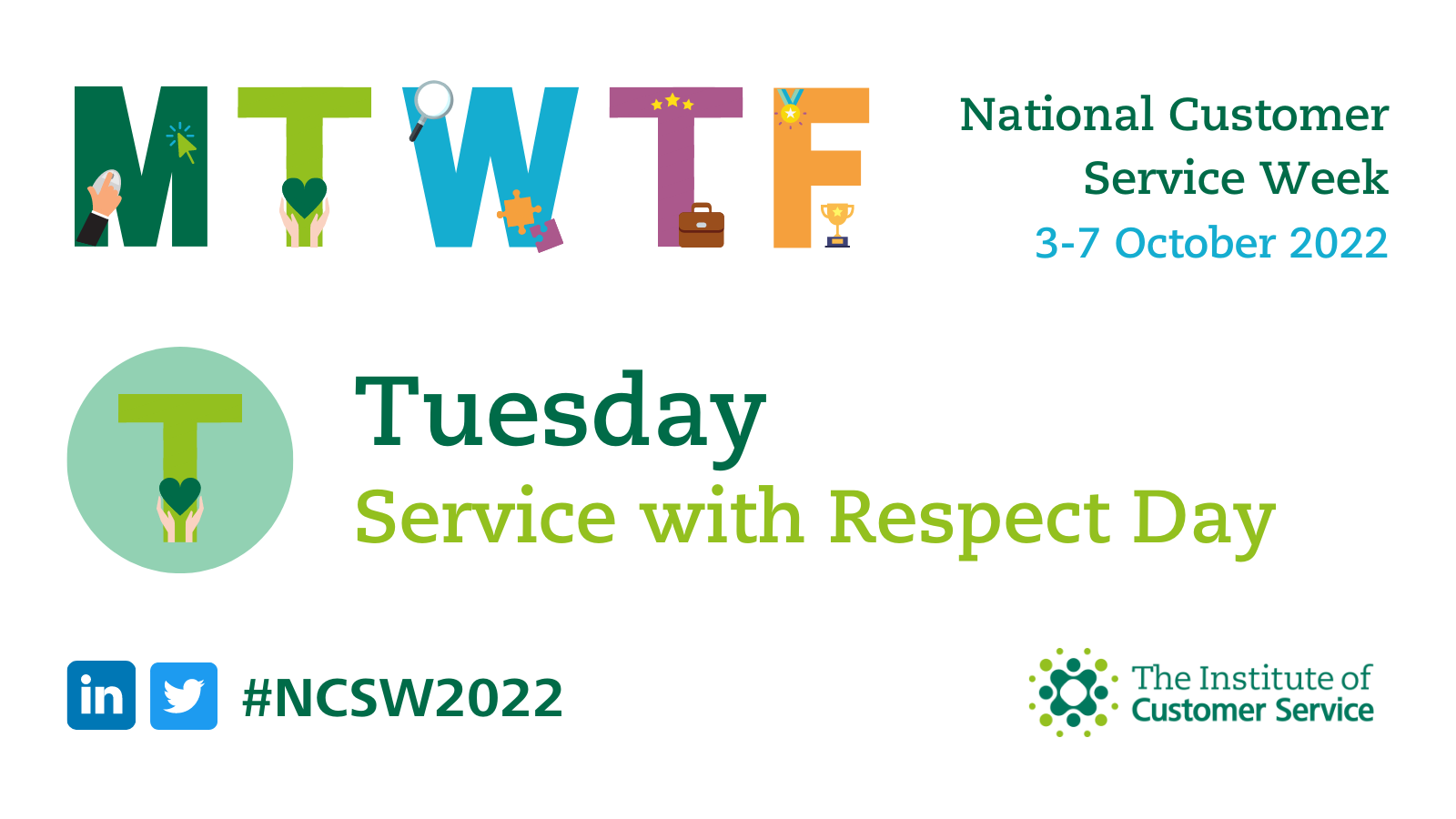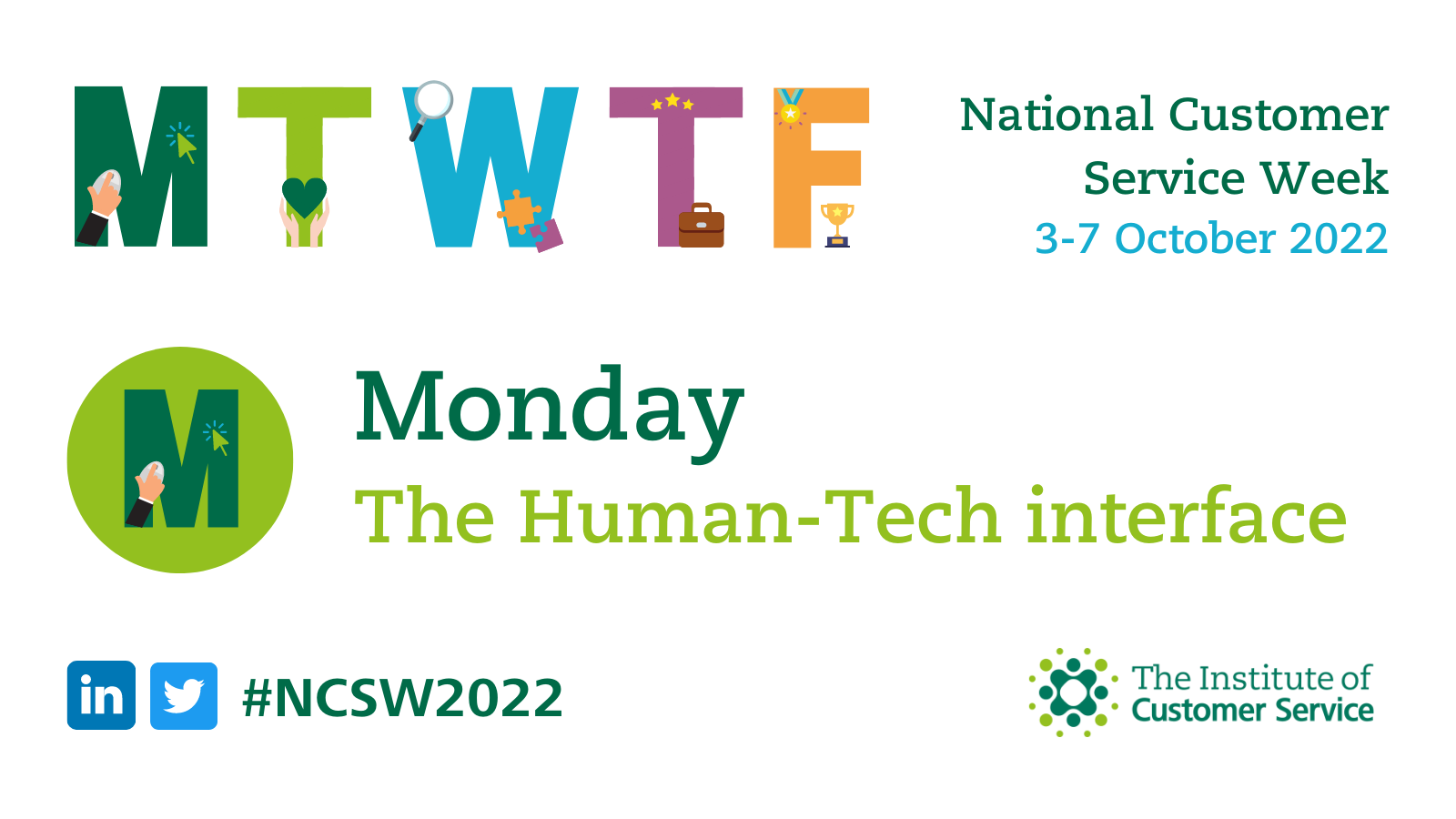
I have been working in and around contact centres for almost 30 years and in that time the landscape has changed enormously! In my early days we had just brought in computers, but it was all “black and green screen technology” effectively filling in a database as we went. Each advisor completed the screen in their own way and there was no real consistency of conversation, but each conversation was very personalised. By the late ‘90’s I was working on a new sales order entry system to make the conversations and transactions flow better. It was in this role that my passion for customer experience was ignited.

The Institute of Customer Service is today celebrating Service with Respect Day in response to a change in legislation that protects all customer-facing workers from hostility and abuse. How sad that we needed a change in legislation to provide protection for customer-facing staff from angry and dissatisfied customers. It feels as though we have fixed a by-product not the problem itself.
Our work at RBL always starts with understanding the customers – who are they and what do they want from a business or service? If they are getting upset and angry, we need to understand why and then work to fix the problems to prevent them from happening before we get to the stage of customers becoming hostile and abusive towards staff.
 Over the last few years, we’ve seen a seismic shift in the development of technology deployed within contact centres and used by customer services teams from AI and Chatbots to Speech and Text analytics tools. There’re dashboards for all sorts of metrics and a desire to ‘deflect’ customers to digital self service solutions to allow firms to keep the costs of supporting customer services under control.
Over the last few years, we’ve seen a seismic shift in the development of technology deployed within contact centres and used by customer services teams from AI and Chatbots to Speech and Text analytics tools. There’re dashboards for all sorts of metrics and a desire to ‘deflect’ customers to digital self service solutions to allow firms to keep the costs of supporting customer services under control.
Whilst I can become a bit ranty about ‘deflecting to digital’ (I once posted on LinkedIn about it if you’re interested) I’m not averse to directing customers to self-service online tools (if they actually work!) and I wholly advocate the use of technology to support front-line customer service staff to deliver an excellent customer experience.
National Customer Service Week (NCSW) 2022 is upon us. It’s a week-long celebration of customer service, taking place 3rd to 7th October 2022. It’s an international celebration calling attention to the importance of customer service and the people who provide it. It aims to boost the morale of those delivering the service and build teamwork.
Here at ReynoldsBusbyLee (RBL) you’ll find a team who are passionate about the customer experience and ensuring that the voices of customers reach the boardrooms and decision makers of the brands that we work with. We’ve developed some great tools and techniques to get our clients hearing their customers' voices loud and clear and they work across all sectors too!
Here we explain what cookies are, how we use them and informs you of your choices.
Cookies are small pieces of text sent by your web browser by a website you visit. A cookie file is stored in your web browser and allows the service or a third-party to recognise you and make your next visit easier and the service more useful to you.
When you use and access our website a number of cookie files are placed in your web browser. We use these cookies to enable website functionality and to gain insights into your preferences to the services we provide such as to store your preferences to enable advertisements delivery including behavioural advertising.
We use a combination of cookies such as session and persistent. We also use essential cookies to authenticate users to prevent fraudulent use of our website.
For the full disclosure of the types of cookies we use please click here
If you would like more information regarding cookies please click here to visit the ICO (Information Commissioner’s Office) website.